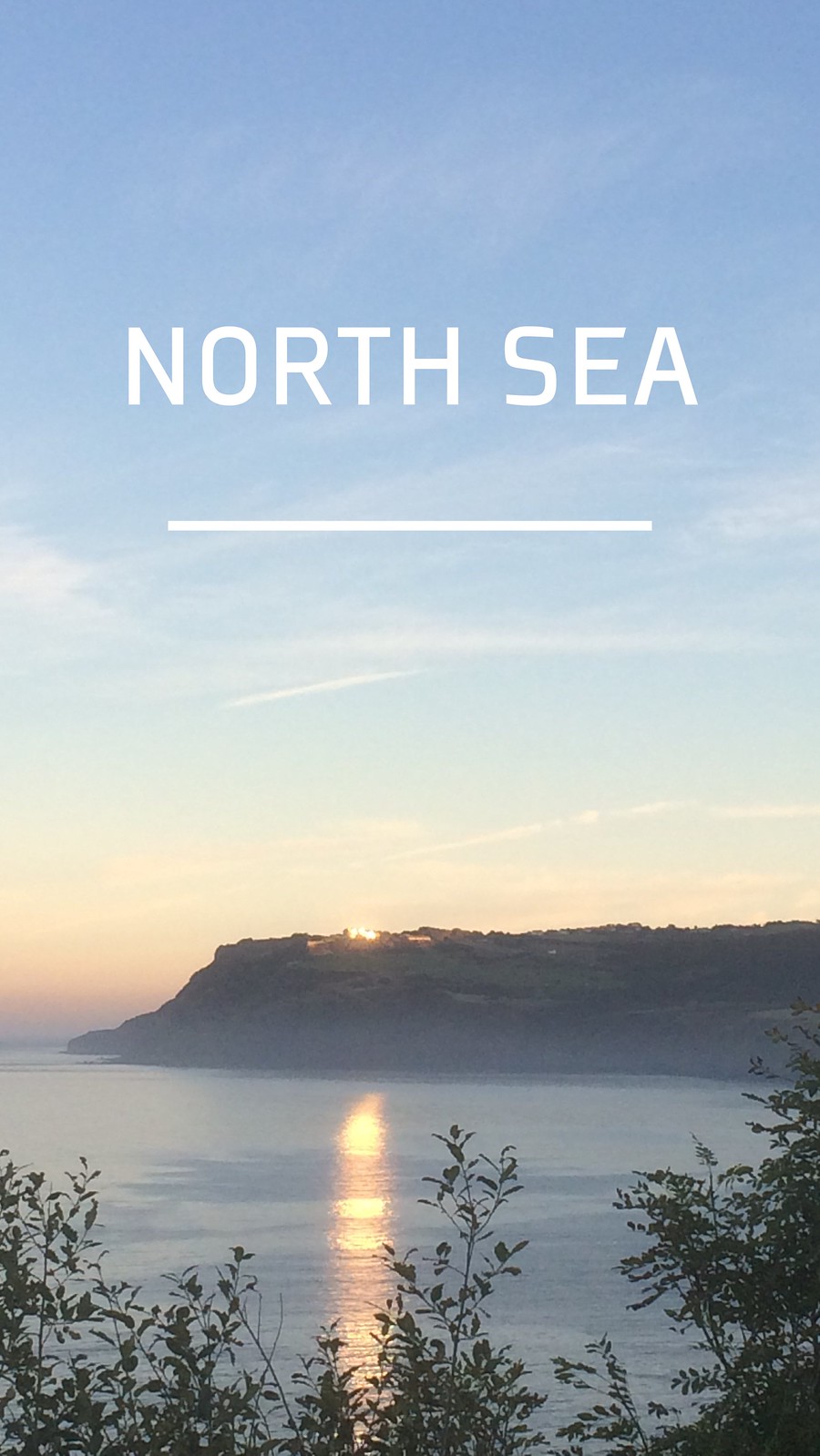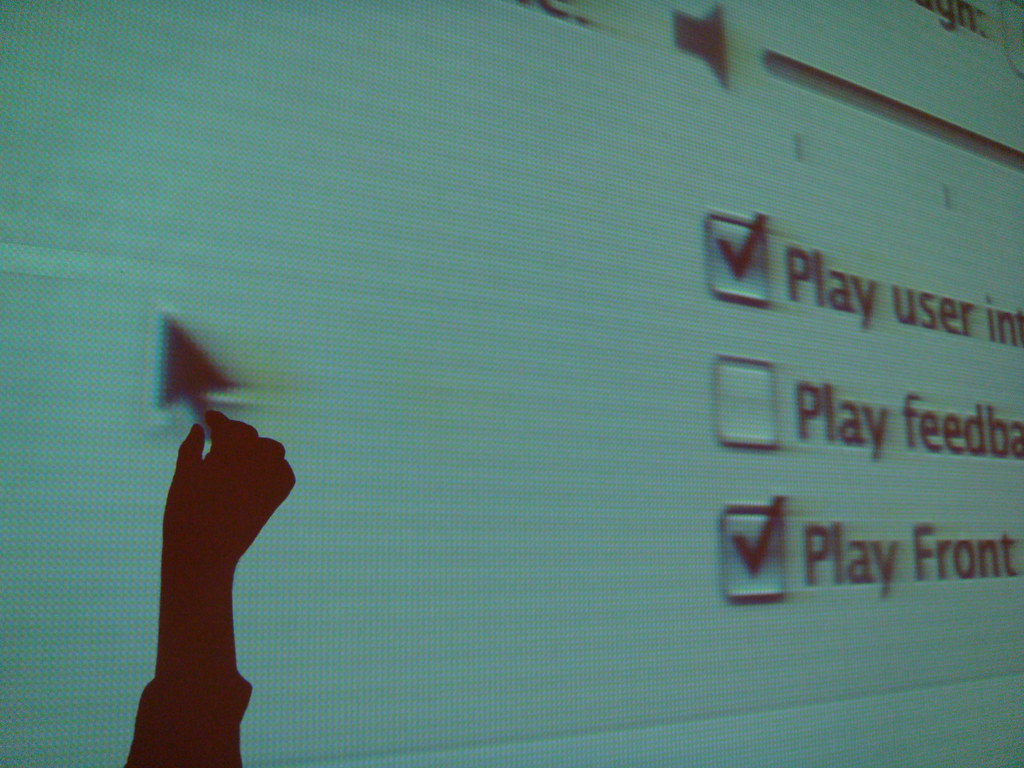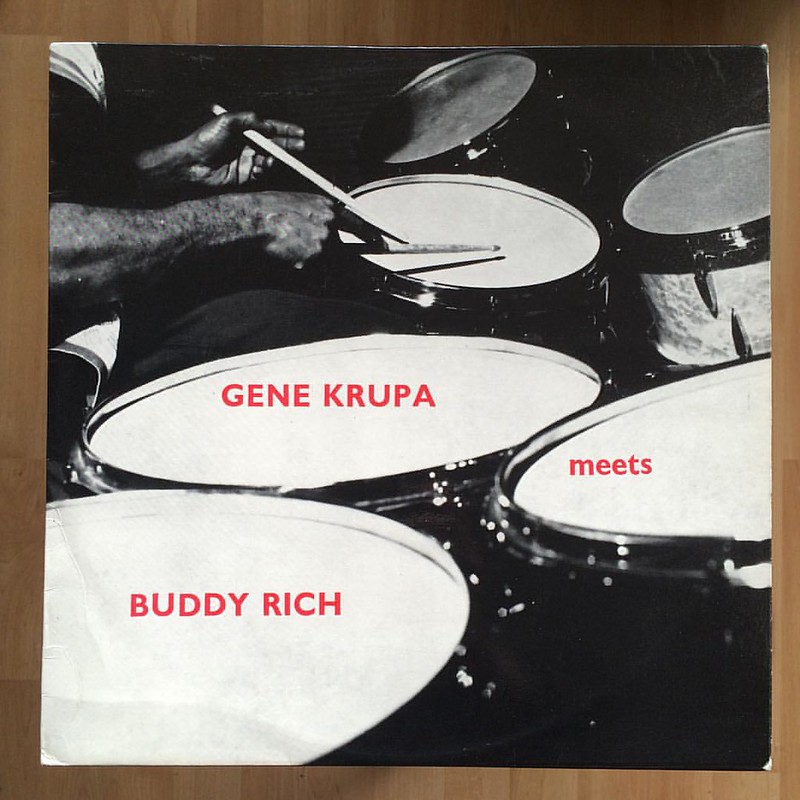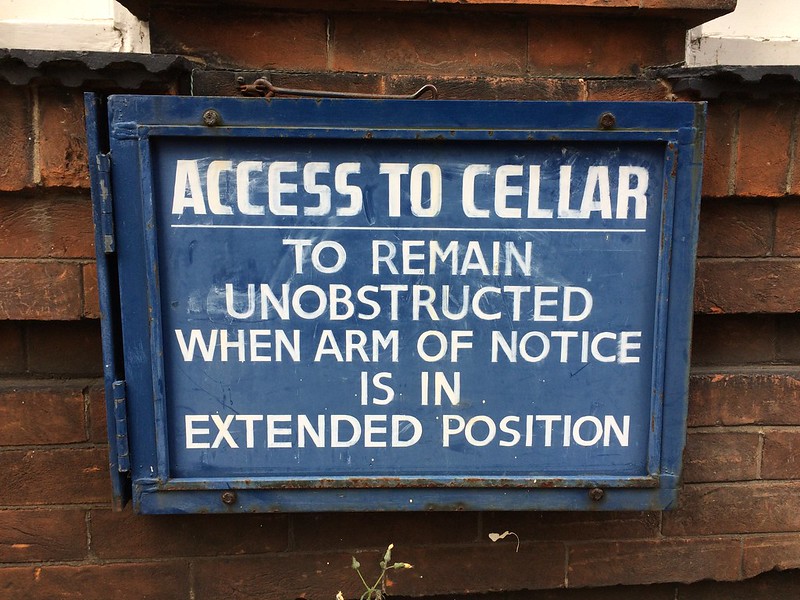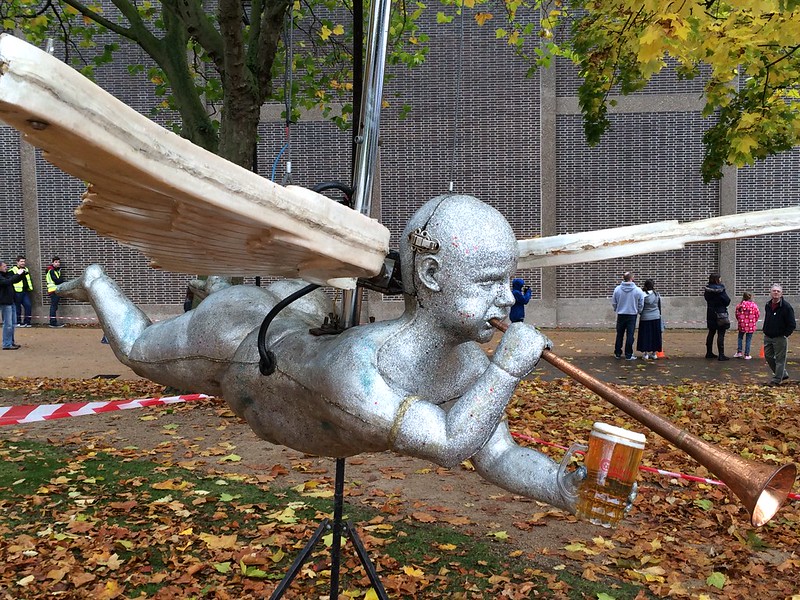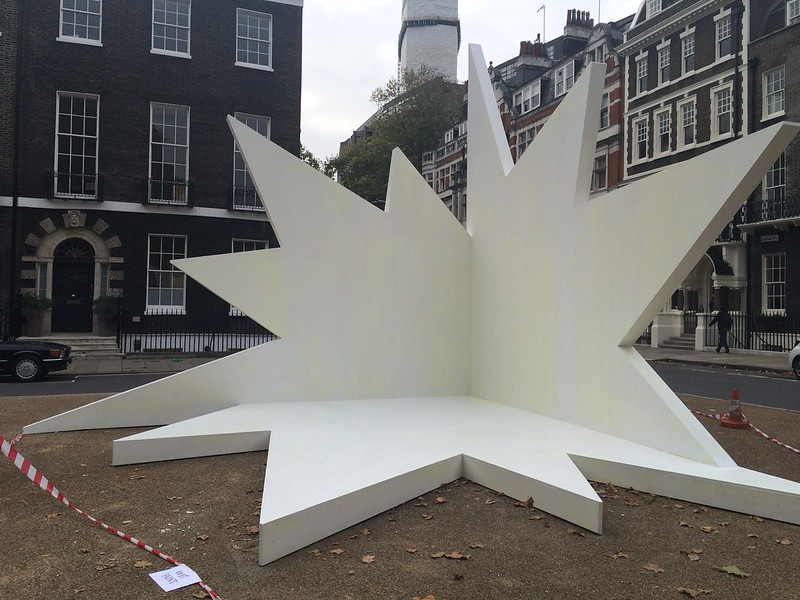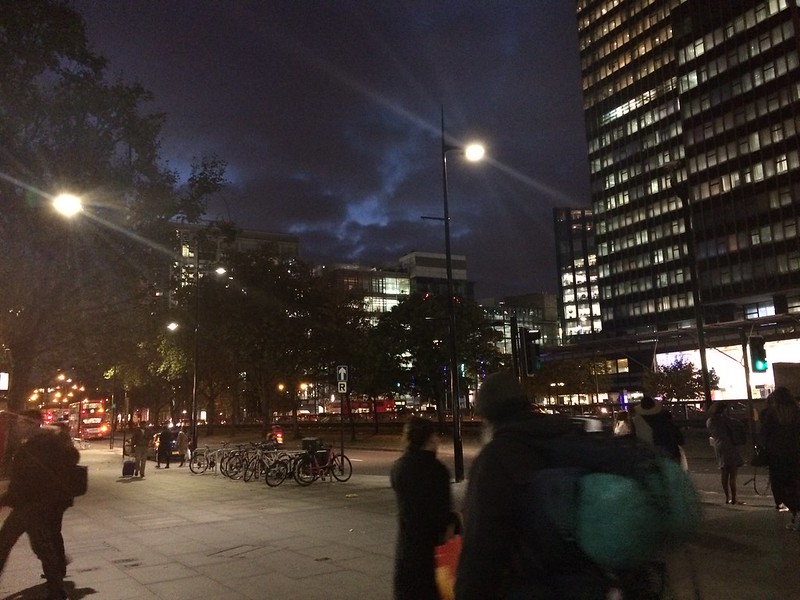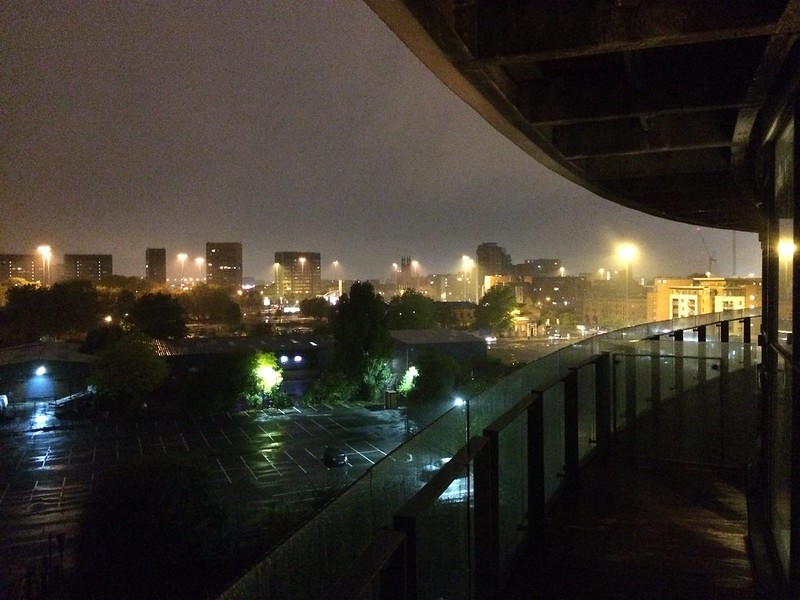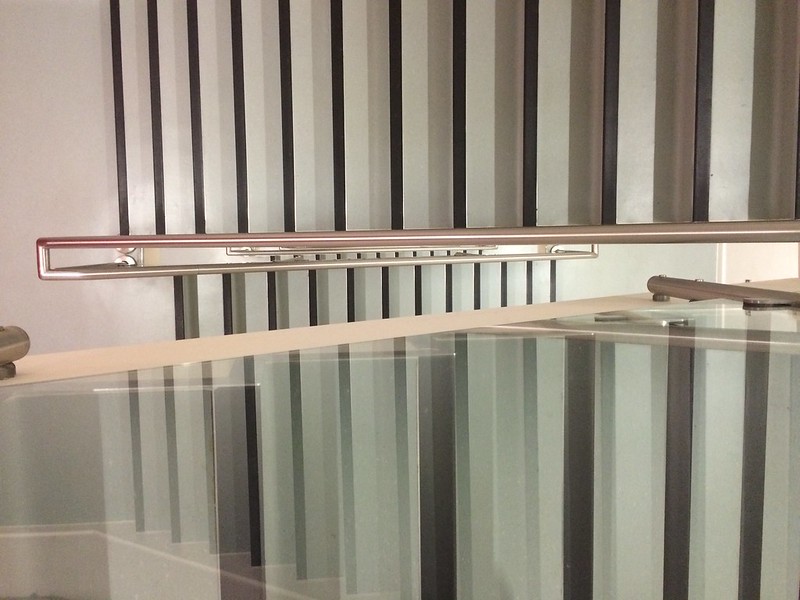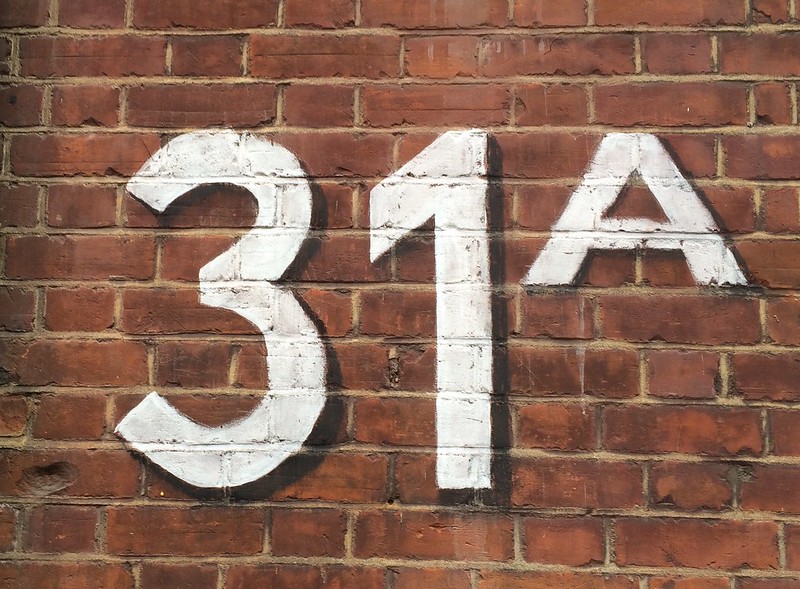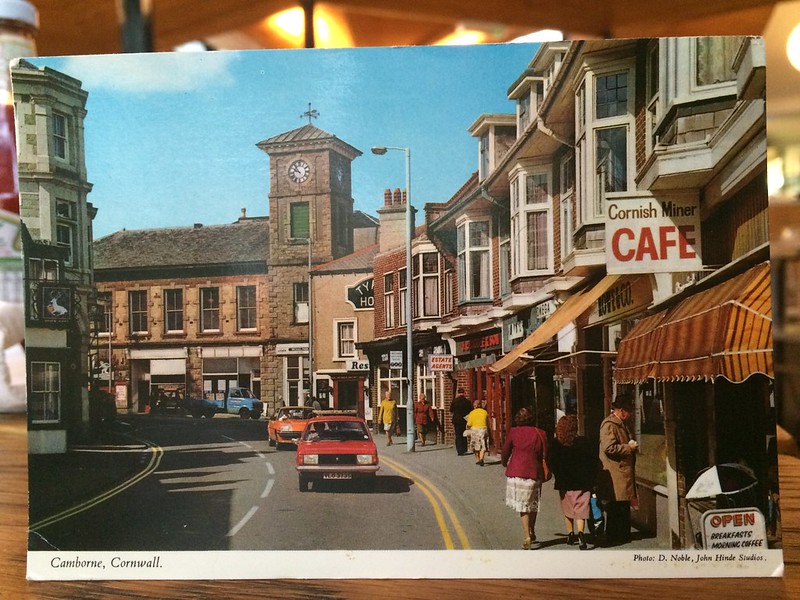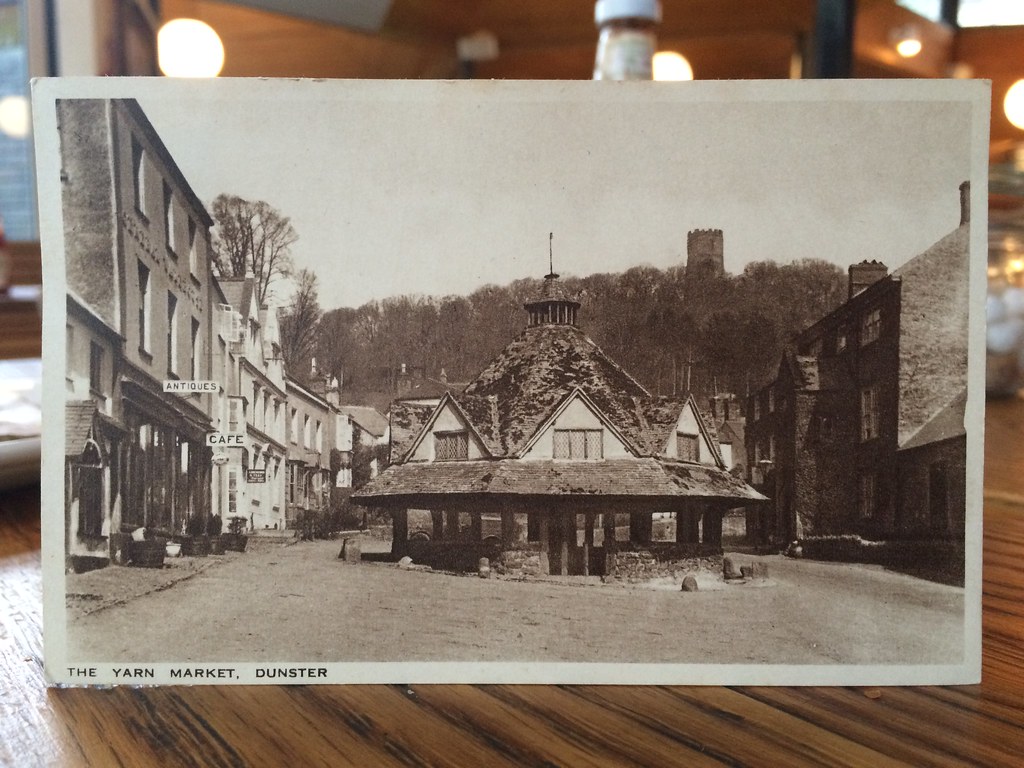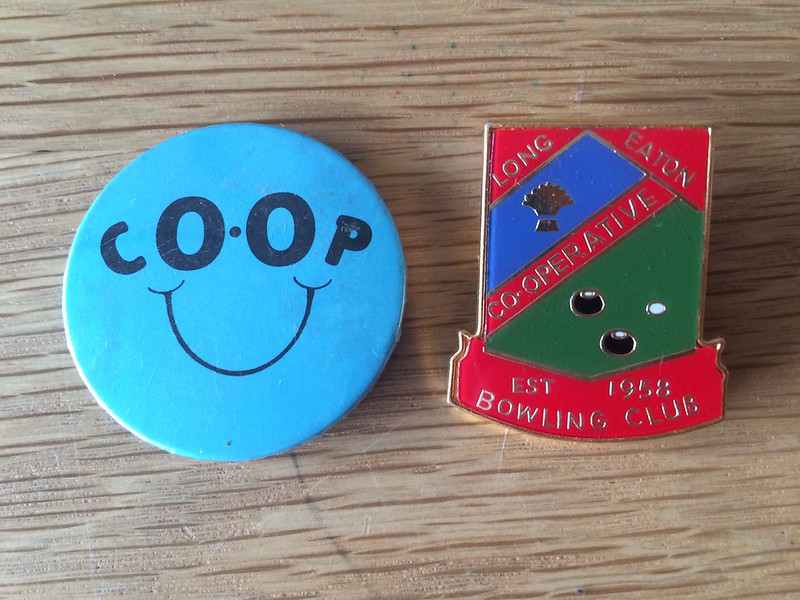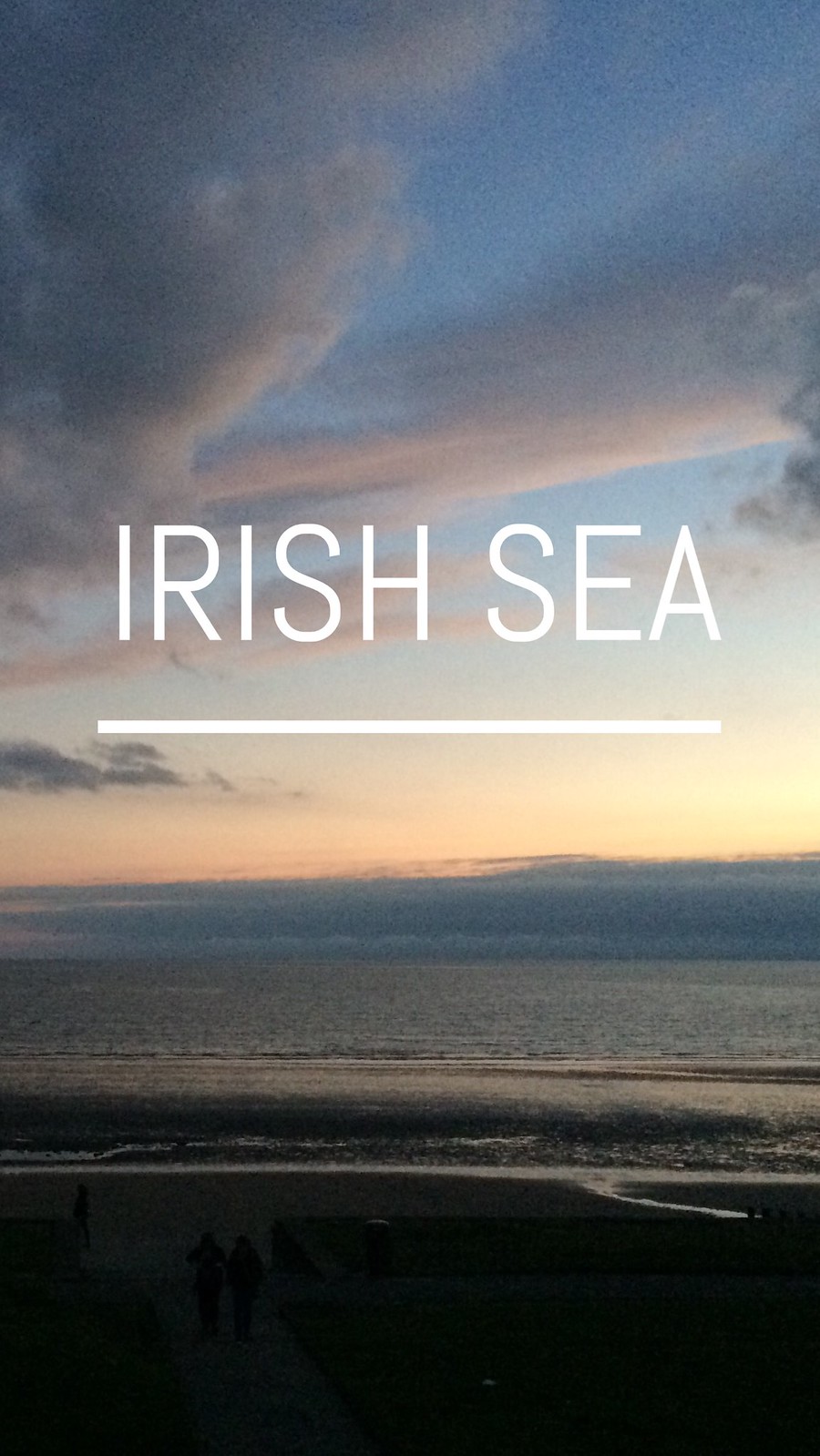
I bought an Electric Object screen off Kickstarter a while back. It arrived a few months ago. I like it. I love the way the official culture they've tried to curate has been swamped by all the people uploading all the usual animated gifs.
Anyway.
When I went on my Coast to Coast walk I wanted to stay in touch with home, knowing that they wouldn't want to just have me call up and moan about my blisters every evening. So I decided to use the Electric Object screen, just to pop a picture on the screen everyday so they'd have a vague idea I was alive and making some progress.
And easily the best walking writing of the last few years has been Matt Sheret's Away For A Walk. I especially liked the early stuff with the pictures and the text, so I wondered if I could do something similar.
So, using my phone and an app called MocaDeco I made a picture every day to upload to our Electric Object.
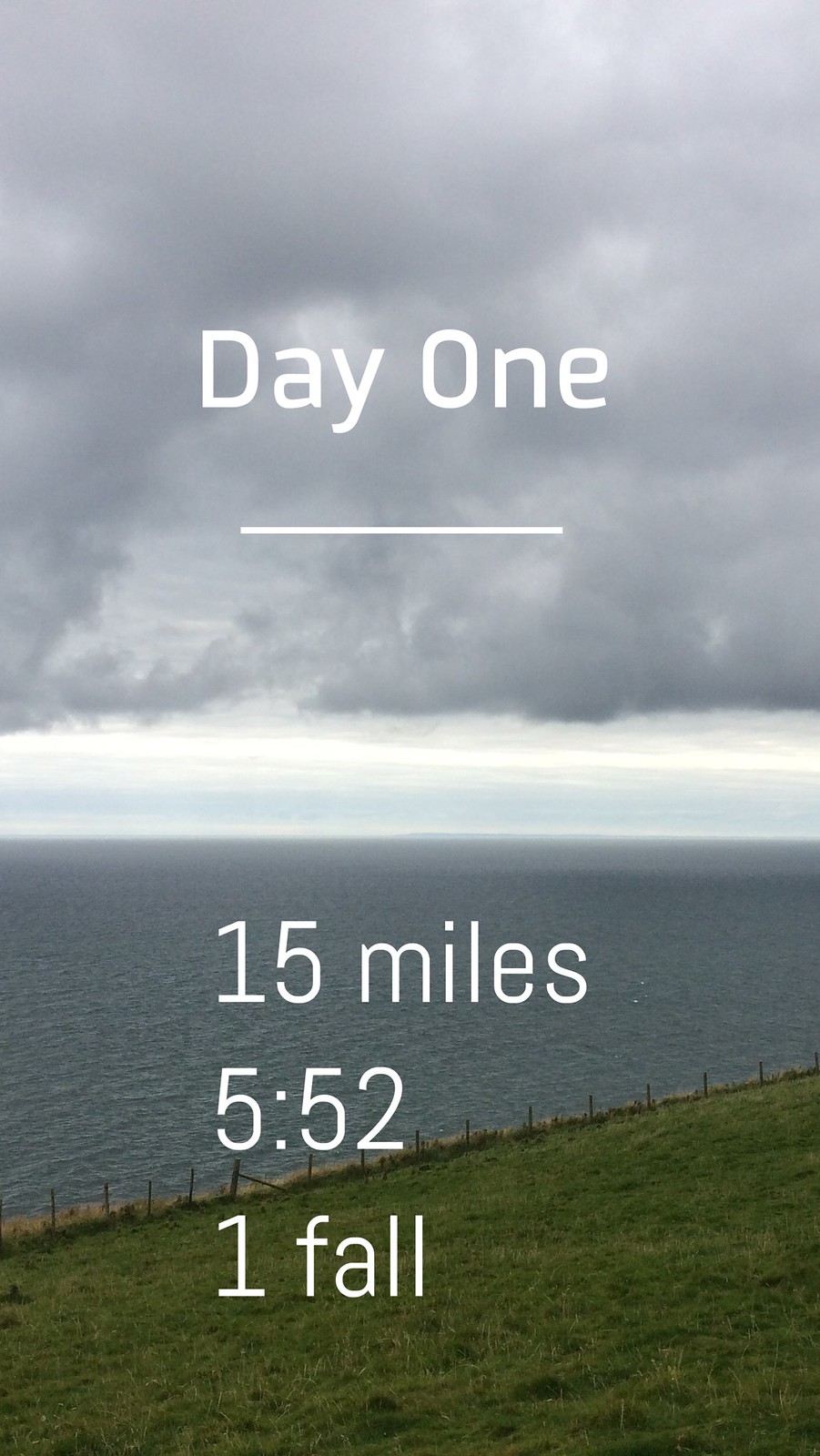
It was not a good start. I did something middle-aged to my knee a while ago, I've been going to a physio for most of the year. She only gave me permission to go on this walk because I didn't tell her about it until it was too late.
And then, on Day One, doing a pretty steep decent on a narrow, crumbly path I lost my footing, twisted my knee again and rolled off the edge of the hill. I was soon caught by the branches of a tree and I'd only actually fallen a couple of feet off the path but, of course, in that tiny moment I'd had time to contemplate every possible awful outcome and reconcile myself to calling mountain rescue and getting airlifted back to London and more physio. Then I had quite a long time, breathing deep, slumped upside down against the bottom of a tree, realising that my knee seemed actually OK and I'd gotten away with being fairly careless.
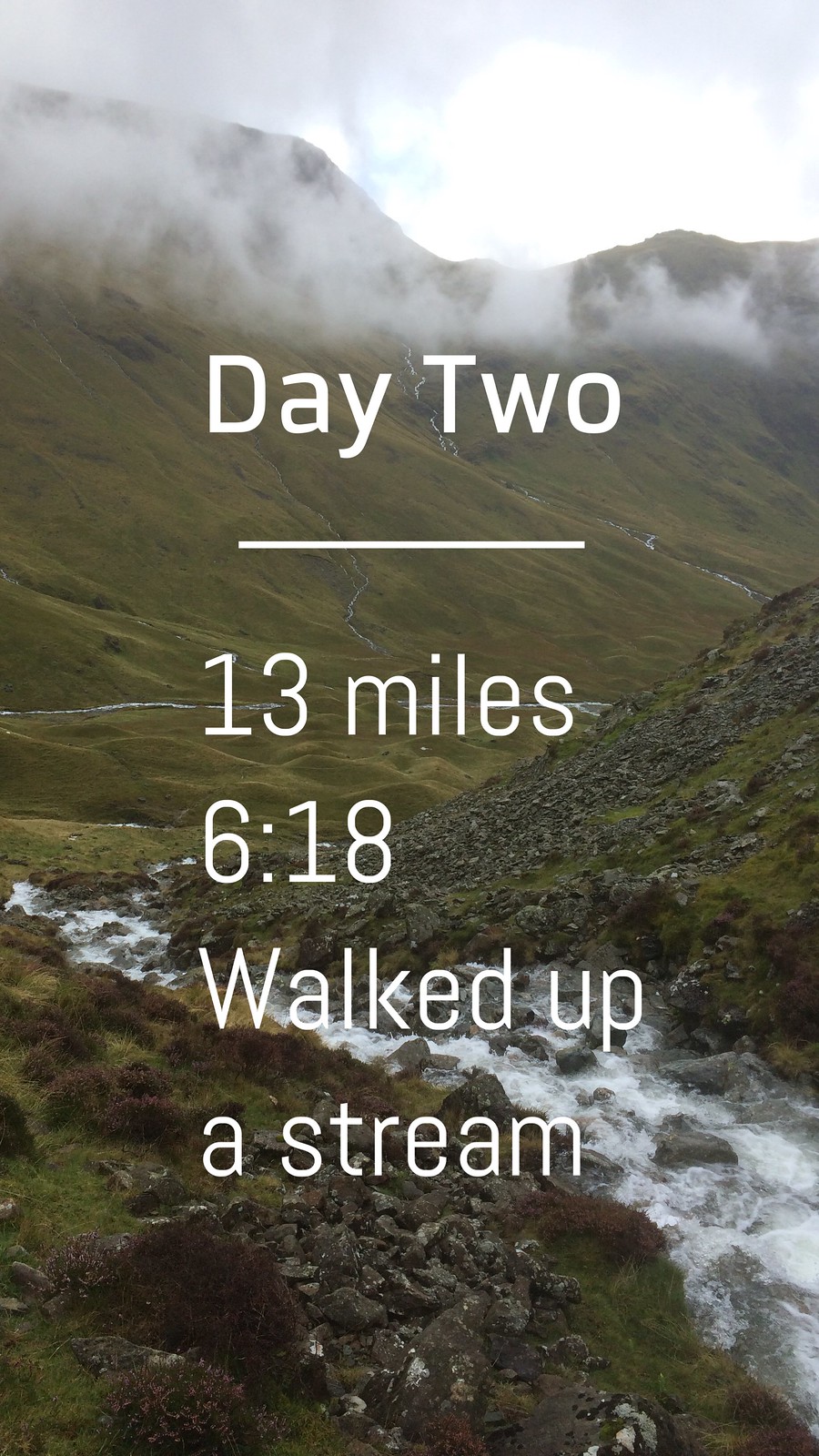
Day Two was wet. Heavy rain all morning, falling on sodden ground, which meant all the paths around Ennerdale Water looked like this:
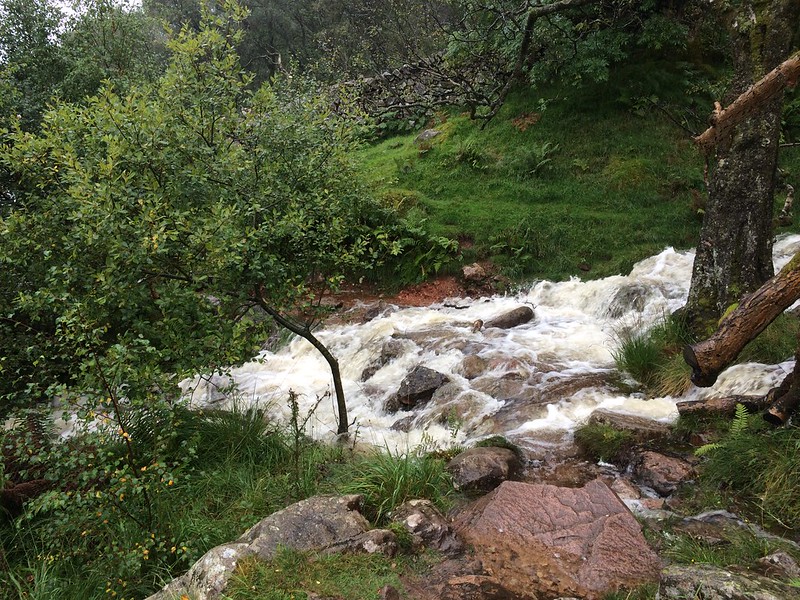
I came across this one about 6 miles into the day and it rather unnerved me. I had visions of wading into it, getting knocked off my shaky knees and ending up face down in the lake with no one to upload my last glimpse of sky to an internet-connected art-screen. Fortunately, it wasn't as torrential as I'd feared, I forded every stream and the day was warm enough to dry me out quite quickly. Full marks to my Nike ACG boots and Patagonia trousers, both bought in the factory outlet stores of Portland, twenty years ago.
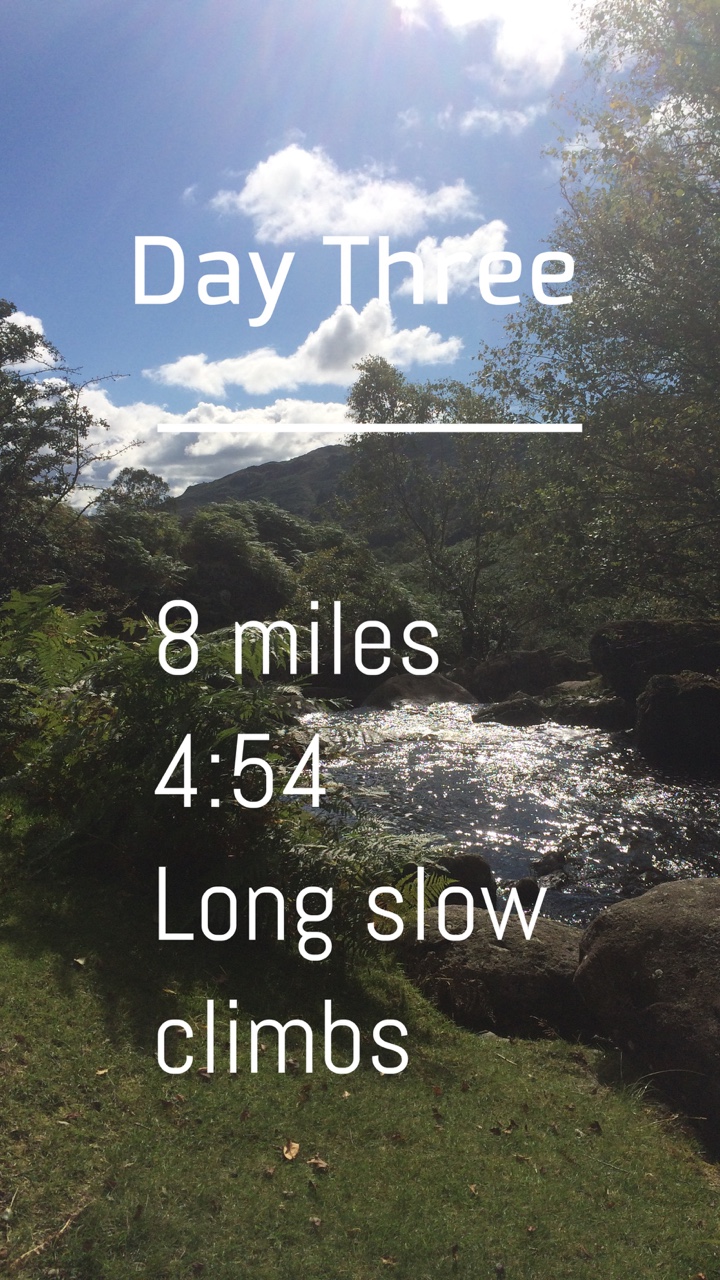
I don't remember anything about Day 3 so we'll just have to trust me and imagine there were lots of long, slow climbs. It's the Lake District so let's assume lots of hills with views, tea shops in the valleys and a self-satisfied tourist industry.
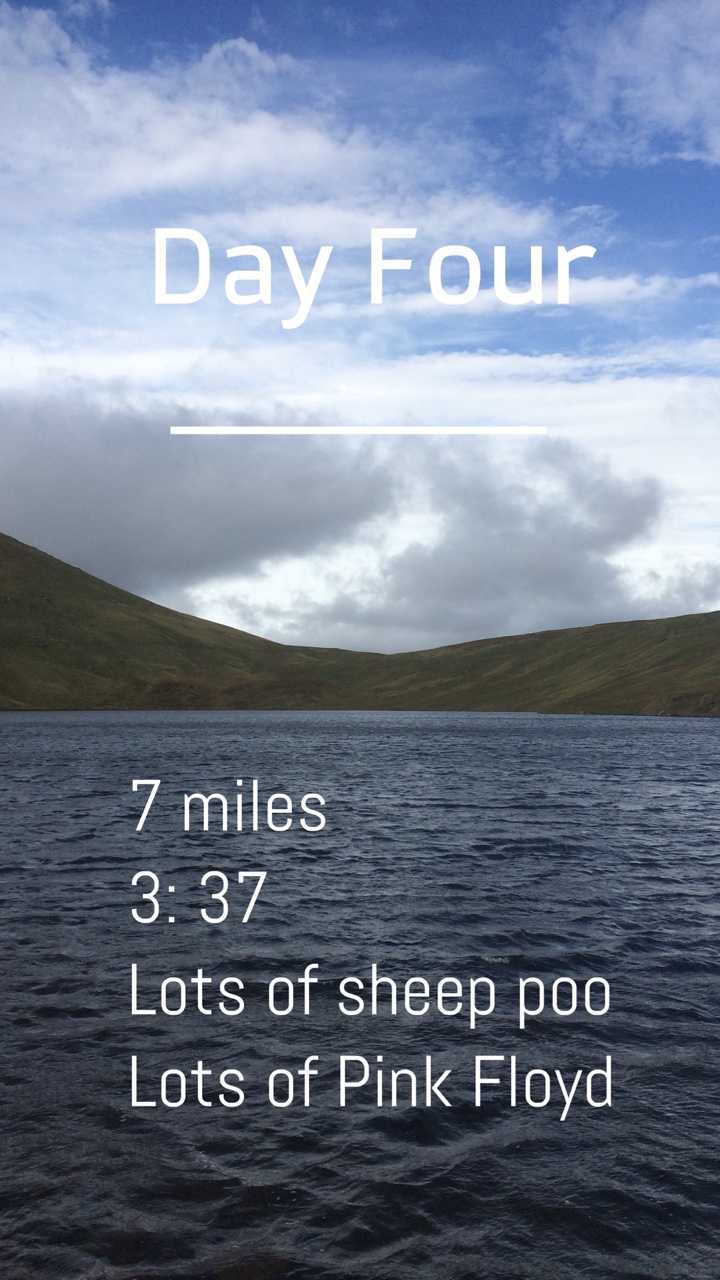
Ah yes. The Floyd Day.
All of my reading and most of my listening on the walk were William Gibson's first 6 books - the Sprawl Trilogy and the Bridge Trilogy. I'd wondered if the contrast between his world and the Coast to Coast would be interesting.
Most of the rest of the listening was the Word podcast, dipping into the archive more or less at random. Splendid stuff. But this day was a day of Pink Floyd. And I'll confess to a day of Genesis too. Which meant, I later realised, that I spent the entire walk listening to the opinions of middle-aged white men. Appropriate, I suppose.
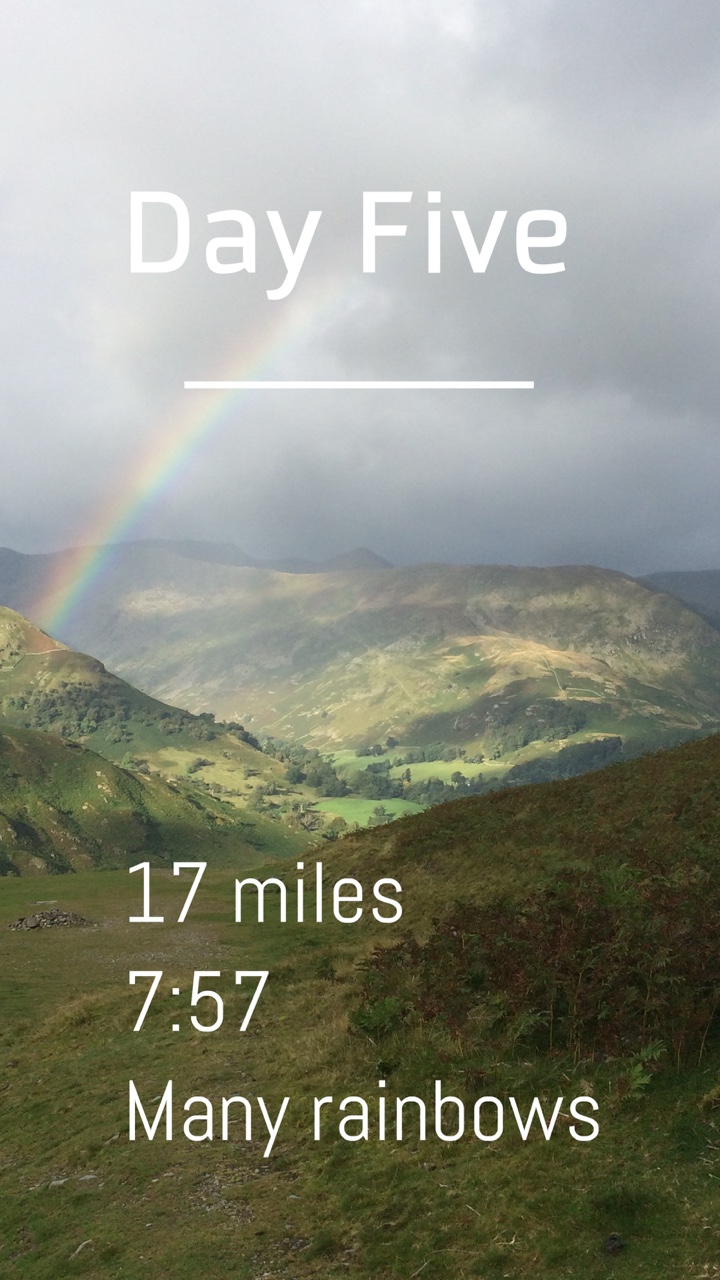
The first reasonably long day, still lots of hills. Looking back at my highlights from the Gibson books I was clearly focused on thinking about bodies and sleep.
"For Case, who’d lived for the bodiless exultation of cyberspace, it was the Fall. In the bars he’d frequented as a cowboy hotshot, the elite stance involved a certain relaxed contempt for the flesh. The body was meat. Case fell into the prison of his own flesh"
"Sleep was becoming real, was something he might do."
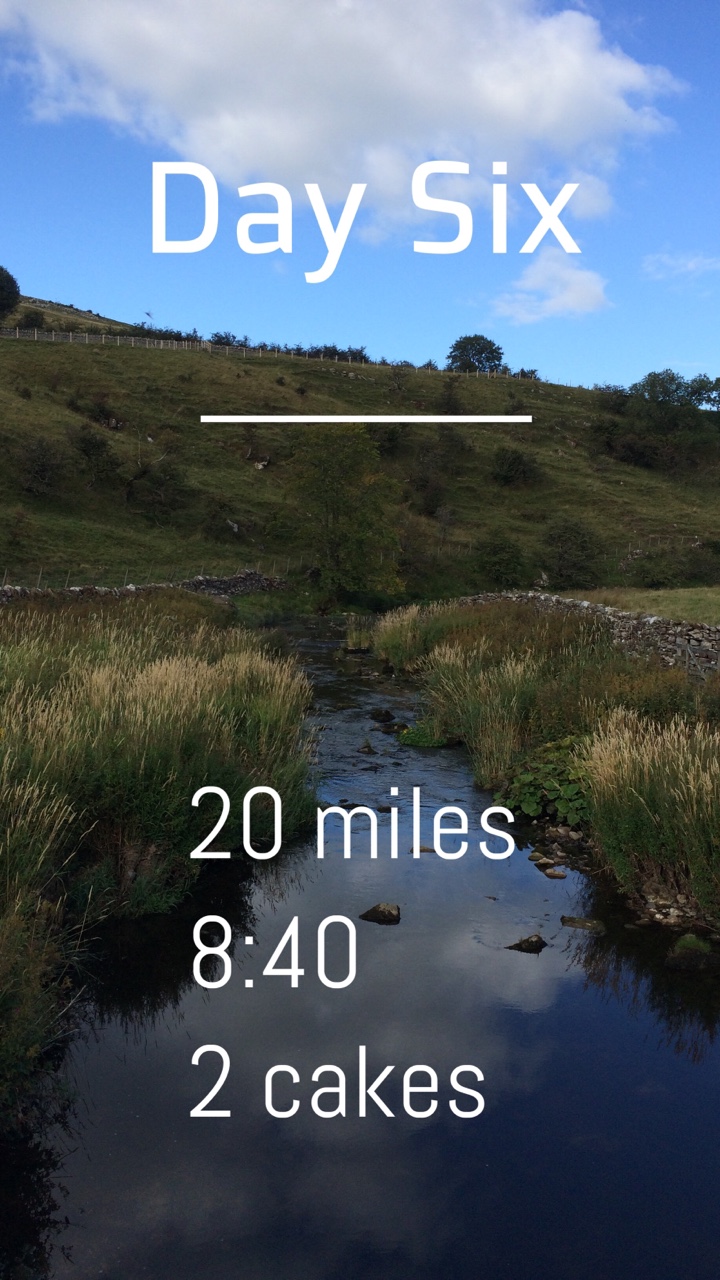
James joined me on Day 6, which was lovely and helped a lot on another long day. I had wondered whether company would help, I was getting to like walking on my own, saying nothing, thinking less, but James was splendid company. We talked enough and were quiet quite a lot. We had cakes.
And the day ended at The Old Croft House in Kirkby Stephen which was the best accommodation of the whole trip. A lovely place. Recommended.
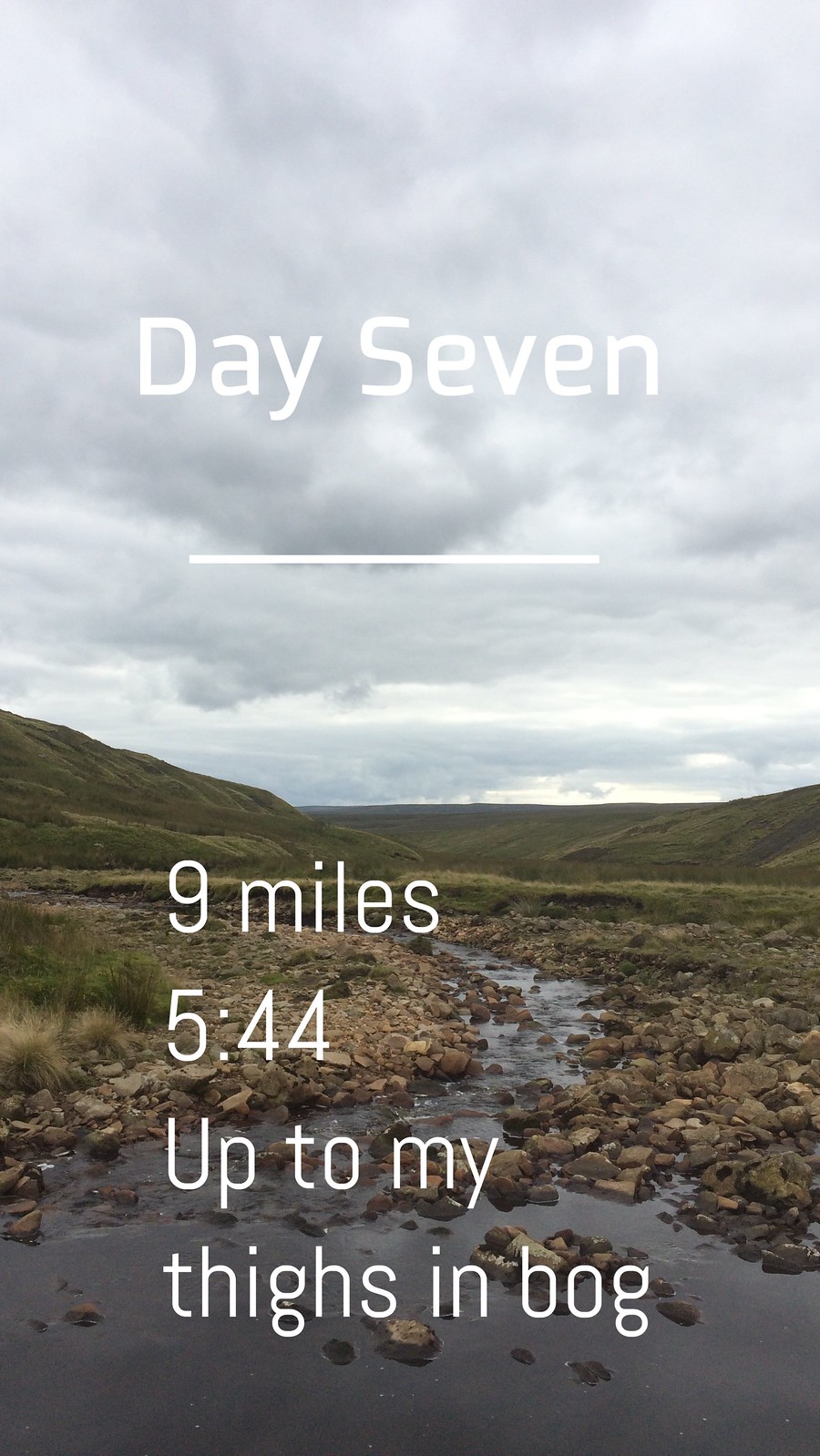
I was incredibly lucky with the weather on this walk. It was never really cold. It was cool when I was climbing hills and it was sunny and clear when I was high on the moors. It was wet though, there'd been a lot of rain, which meant the bogs were pretty boggy when I got to them. The first time you step into something that looks solid but which sucks you down to your thigh it is reasonably alarming. Mostly because of all that quicksand you see in films, partly because you're on your own and you imagine yourself getting stuck and waiting for rescue by a couple of pensioners.
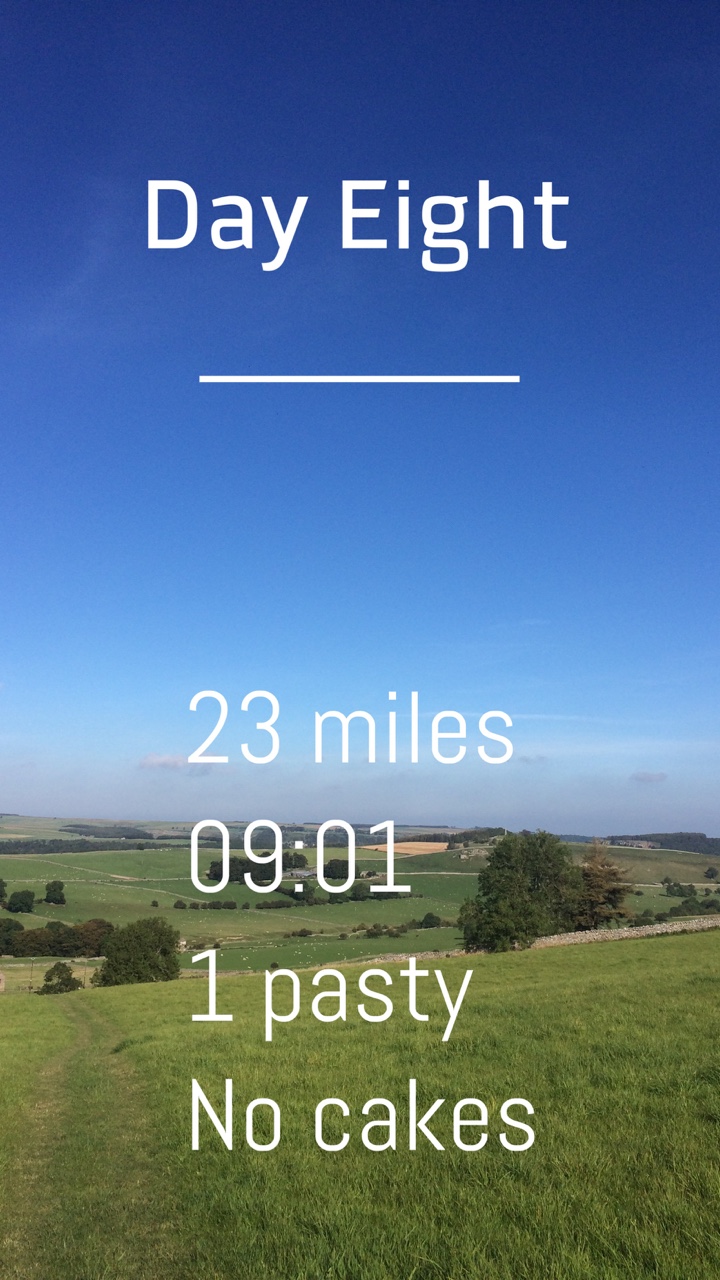
I had my pasty in Reeth, a pretty village with a huge green, surrounded my tea shops and coach parties. It was here I realised that I'd slipped into a temporal field that has always had a strong pull on me - I'd dropped into Pensioner Time. I was outside, walking, on a weekday, not in the school holidays, I was surrounded by history's victors - middle-class pensioners. They were most of the people walking. They were the people in the convertible Audis and BMWs who burned through every village. They were the people in the B&Bs, asking about the wifi password. I am almost them.
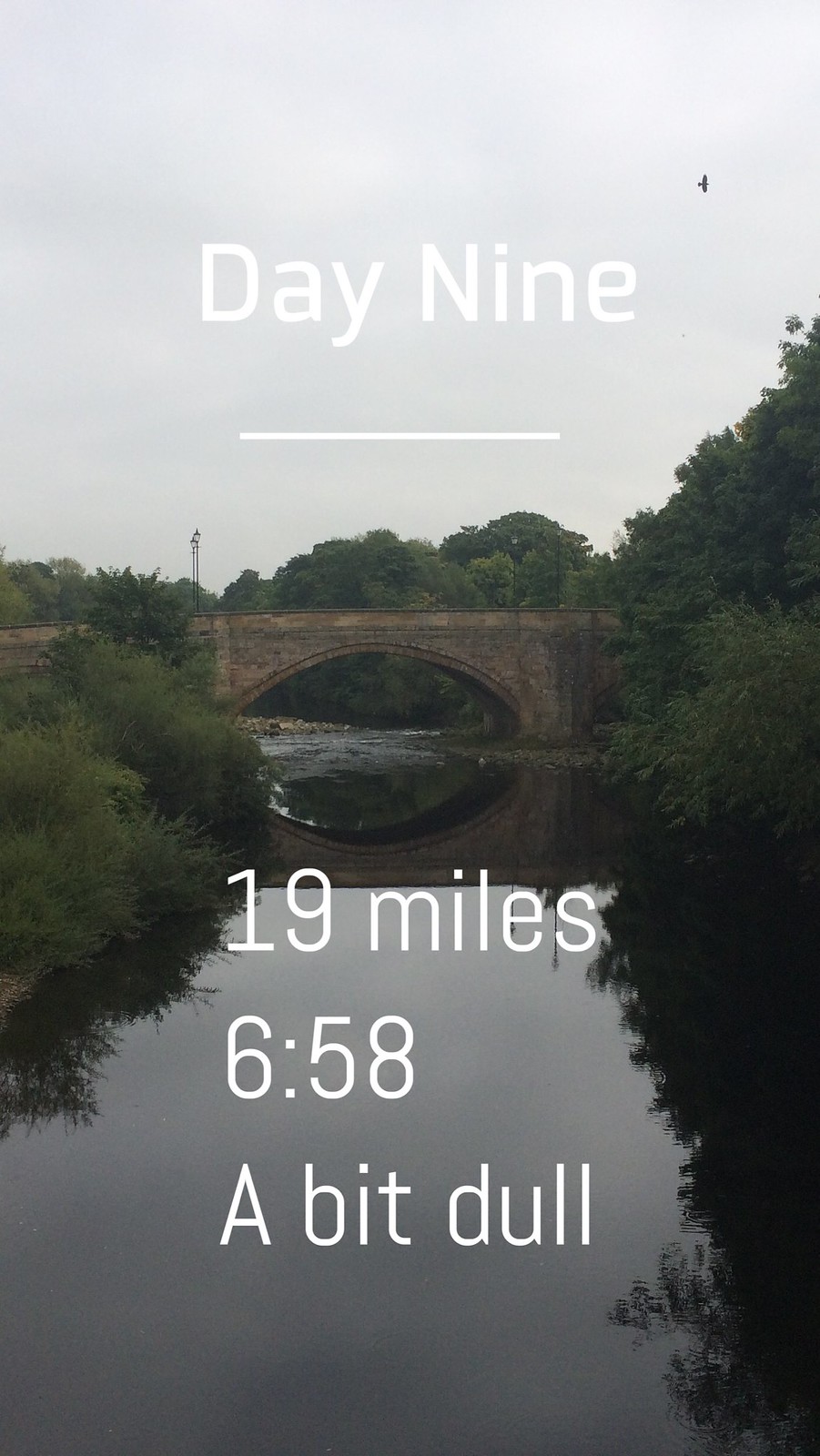
I've not helped myself very much here have I? I guess it was a bit dull. Swaledale, I believe.
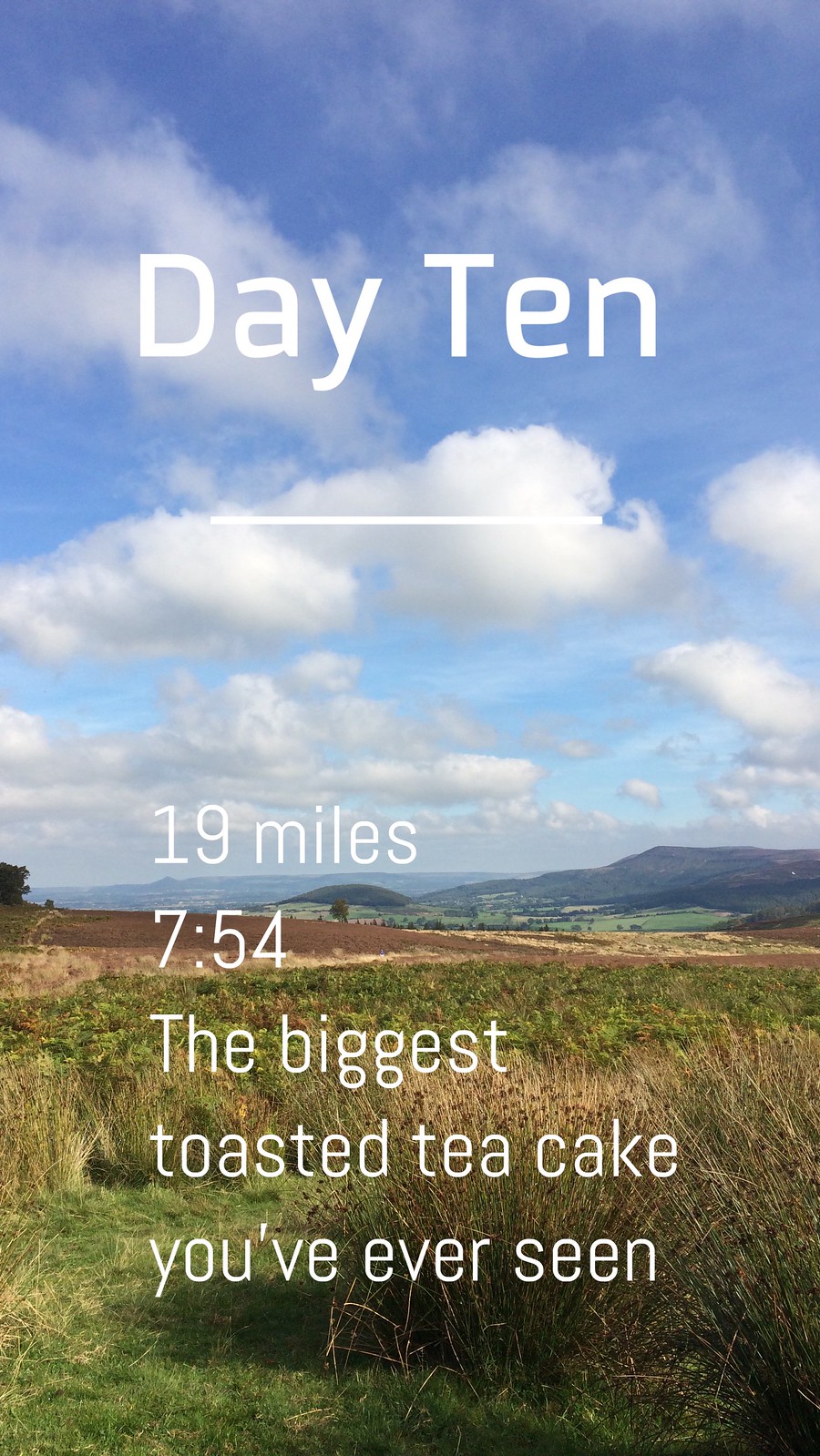
I remember this tea cake though. Delicious. And I remember a day that started low in the mist and ended high on the hills in sunshine. At this point I'd worked out exactly what to carry and wear, I had my clothing properly tuned. I was thinking about clothes a lot, they're the environment you're in as much as the weather is. What's rubbing, what's warm, where's the sweat, what's chaffing. I was noticing the clothes in the Gibson too:
"She was wearing faded French orbital fatigues and new white sneakers"
"Sexless and inhumanly patient, his primary gratification seemed to lie in his devotion to esoteric forms of tailor-worship"
"She’d zipped herself into an old surplus vest with a dozen oddly shaped pockets"
"There was a Japanese gravity knife with orange handles beneath his pillow; that went into a narrow pocket on the jacket’s left sleeve near the cuff."
"He came up with a black canvas jacket with at least a dozen pockets, one of them a single huge pouch across the small of the back, a kind of integral rucksack."
"His jacket, the one she always wore, that had come from D. Lewis, Great Portland Street"
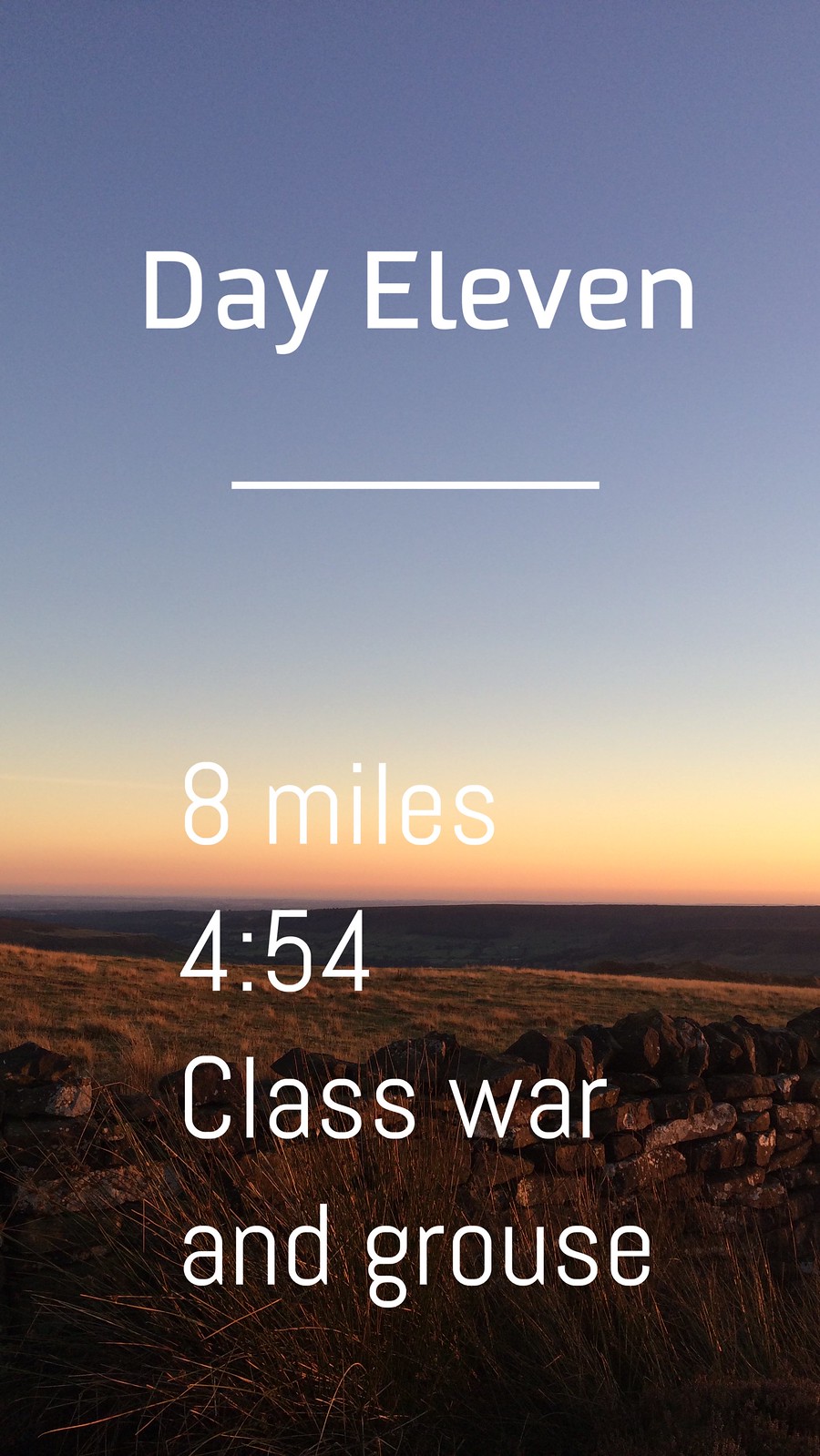
A gentle day, almost a rest day, not much to think about, until I found myself walking across some access land, privately owned, publicly accessible. And then I noticed a hoard of people crossing the moors, shapes on the horizon. I passed a couple of modified Land Rovers, then an improvised car park full of the ugliest 4x4s, one of them towing a refrigeration unit. And it dawned on me I was in the middle of a grouse shoot. Fair enough, I thought, and trudged on until a nice young man, crouched at the side of the track asked me if I wouldn't mind waiting a little while until they drove the grouse through. How long? I asked. I was quite keen to get finished that day, to rest and call home while not knackered. Just a little while he said, just 40 minutes.
Gah.
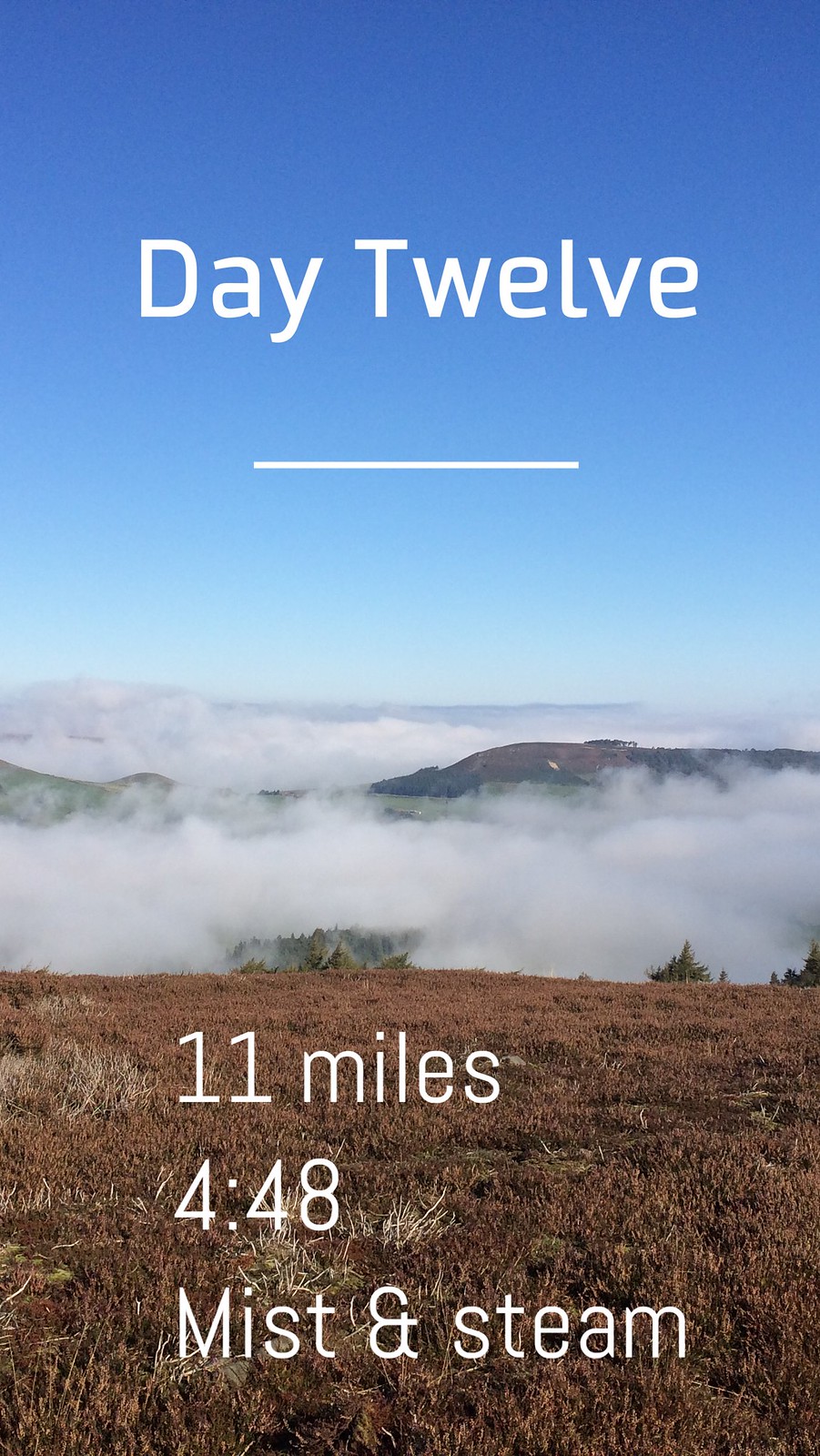
If I learned anything on this walk it was; I don't want to live in Cumbria or Yorkshire. I'm sure they won't miss me, but they never put the heating on and I'm not sure the landscape matches the best of the Peak District. But this was a lovely day. Mist in the morning, sun on heather in the afternoon and steam trains to contemplate at the end of the day.
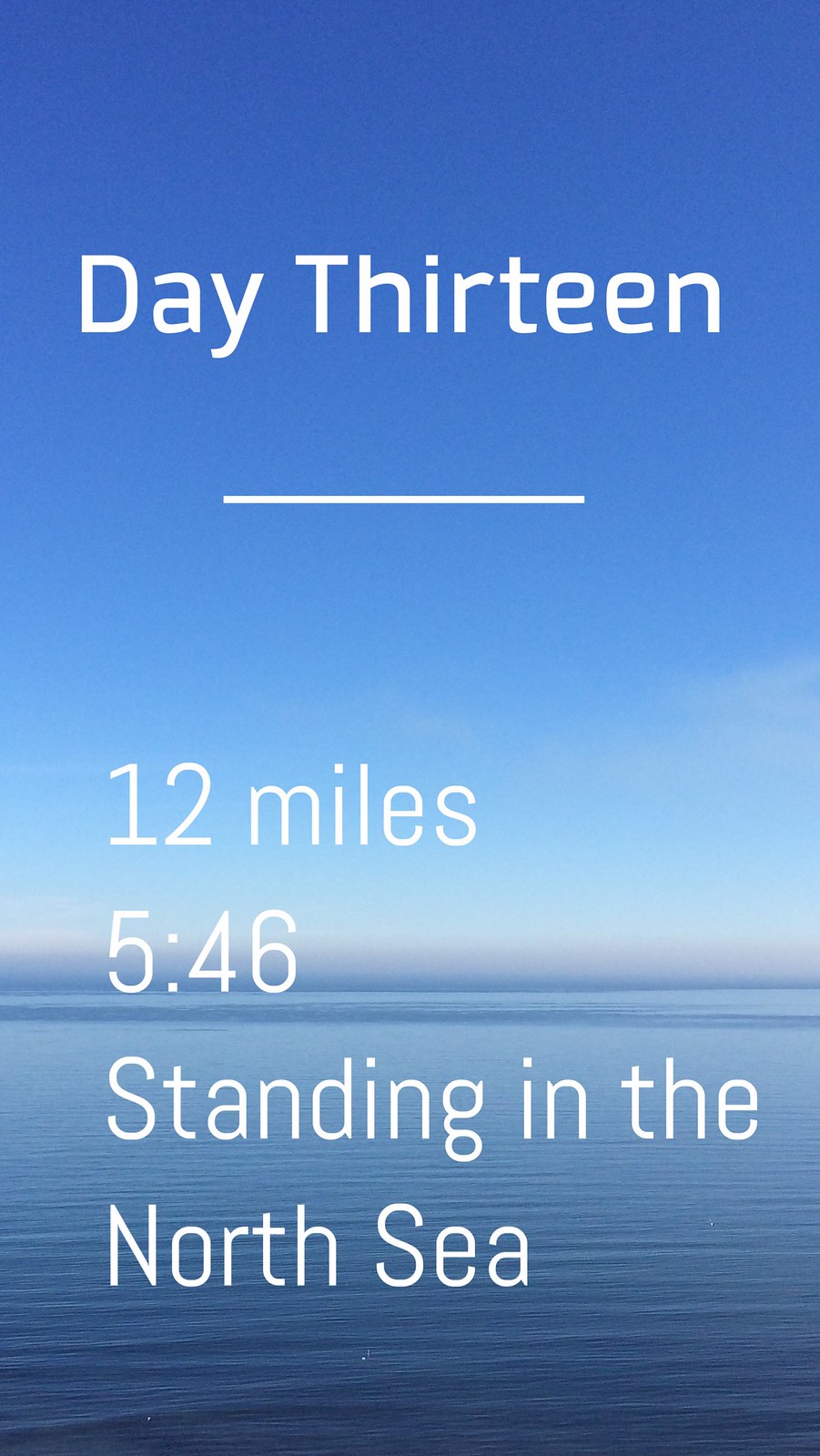
And then I finished.
It came a bit suddenly. The North Sea, to me, is the miserable sea of grim childhood holidays in Skegness but look how tropical it looked on my last day. Deep and blue and even.
I'm not convinced I enjoyed my walk. I was thinking, all the way through, am I enjoying this? I don't know. And I didn't take the deep swim in Lake Me I was anticipating. I didn't do any thinking at all really. My only thoughts were: how far is it to go? Will I be able to avoid talking to anyone at the next B&B? What if I can't get a job when I get back? Should I listen to some more Genesis? I wonder what Anne and Arthur are up to? I missed them a lot.
But I'm glad I did it. Very glad. It feels like a thing to have done. A solid, material achievement. Even if completely pointless.
